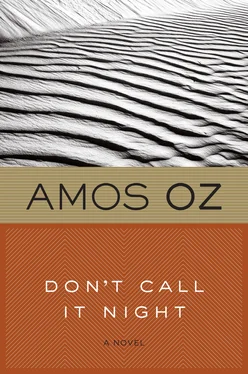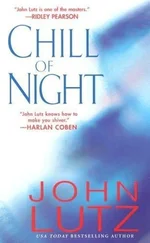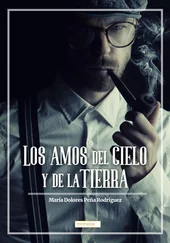Amos Oz
Don't Call It Night
AT seven o'clock in the evening, sitting on the balcony of his second-floor apartment, he is watching the departing day, and waiting. What does the last light promise, and what can it deliver?
Below lies an empty garden with a patch of lawn, some oleander bushes, a bench and a neglected bougainvillaea bower. The garden ends in a stone wall marked with the outline of an opening which is blocked with courses of stones that are newer, lighter in colour — in fact, at this moment they even seem slightly lighter in weight than the original stones of the wall. Behind the wall rise two cypress trees. Now, in the evening light, he finds they look black rather than green. Beyond stretch barren hills. That way lies the desert, where, every now and again, a grey eddy whirls up, quivers for a moment, wriggles, sweeps away, subsides. Only to start up somewhere else.
The sky turns grey. There are some still clouds, one of which faintly reflects the glow of the sunset. The setting sun itself is not visible from this balcony. On the stone wall at the end of the garden a bird shrills excitedly, as though it has just discovered something that cannot be bottled up. How about you?
Night is falling. Around the town the streetlights are coining on, and windows shine out between intervals of darkness. The strengthening wind carries a breath of campfires and dust. The moonlight casts a mask of death on the nearest hills, which are no longer hills but like the notes of a muffled tune. This place seems to him like the end of the world. He does not mind being at the end of the world. He has done what he can, and from now on he will wait.
He leaves the balcony, goes indoors, sits down, his bare legs on the coffee table, and his arms hanging down heavily on either side of the armchair as though being pulled towards the cool floor. He does not switch on the television, or the light. From down the street comes a whispering of car tires, followed by the barking of a dog. Someone is playing a recorder, not a whole tune but simple scales repeated without any apparent variation. These sounds agree with him. In the bowels of the building the elevator passes his floor without stopping. In a neighbouring apartment a woman's voice is reading the news on the radio, probably in a foreign language, though he is not certain of that right now. A man's voice on the stairs says, It's out of the question. Another replies, Okay then, so don't go, it'll come.
When the throbbing of the refrigerator stops, crickets can be heard in the wadi, as though punctuating the silence. A faint breeze rustles the curtains, ruffles the pages of a newspaper on a shelf, crosses the room, stirs the leaves of a houseplant, exits through the other window and returns to the desert. He momentarily hugs his shoulders. The pleasure reminds him of a summer evening in a real city, maybe Copenhagen, where he once stayed for a couple of days. Over there the night does not suddenly pounce, it feels its way gently. There the veil of twilight stretches for three or four hours, as though the evening aspires to reach out and touch the dawn. Various bells were ringing, one sounding hoarse, like a cough. A soft drizzle joined the evening sky to the water of the strait and the canals. An empty, brightly lighted streetcar passed in the rain, and he thought he saw the young conductress leaning over in conversation with the driver, resting her hand on his, then the drizzle again, as if the evening light were not passing through it but coming from it, and the droplets met with the spray of a fountain in a small square, where the quiet water was illuminated from within all night long. A shabby middle-aged drunk was sitting on the parapet dozing, his grey-bristled head sunk deep on his breast, and his feet, sockless in his shoes, immersed in the water, motionless.
What time is it now?
He peers in the dark at his watch, but as he looks at the luminous hands he forgets what the question was. Is this perhaps the beginning of the gradual decline from pain into sadness? Dogs start barking again, furiously this time, in backyards and empty lots, and from the direction of the wadi, and beyond, from the distant darkness, from the hills, Bedouin shepherd dogs and strays, perhaps scenting a fox, one bark subsiding into a whine and being answered by another, piercing, desperate, as though mourning an irreparable loss. This then is the desert on a summer night, ancient, impassive, glassy. Neither dead nor alive. Simply there.
Looking at the hills through the glass balcony door and across the stone wall at the end of the garden, he feels a sense of gratitude, but for what he is not sure. Could he really be grateful to the hills? A man in his sixties, stockily built, with a broad, peasant face and a suspicious or doubtful expression with a hint of concealed cunning. He has close-cropped grey hair and a distinguished-looking brindled moustache. In any room he seems to occupy more space than his body really takes up. His left eye is almost always half-closed, not as though he were winking but as though he were staring fixedly at an insect or a tiny object. He sits wide awake yet limp, as if after deep sleep. He finds the calm connections between the desert and the darkness satisfying. Let others be busy this evening having fun, making arrangements, feeling regret: for his part he willingly endorses this moment, which does not seem empty. The desert seems right to him and the moonlight justified. In the window opposite, two or three stars glow sharply over the hills. Softly he declares: Now you can breathe.
IT'S only in the evening you can breathe a bit, when the heat lets up. Another crazy day is over. I've spent all my time just running after time. From eight o'clock till one forty-five, at school: two hours' general literature, two hours' matriculation revision, and an extra hour for Russian immigrant kids whose minds were definitely not on the Exile of the Godhead. A pretty girl called Ina or Nina said in a lesson about Bialik: His words are Biblical, the sentiment he took from Lermontov, the poesy is anachronistic. She went on to recite some lines of poetry in Russian, perhaps to demonstrate the sort of poetry she liked. I silenced her. Even though I was not entirely captivated with the subject and had difficulty restraining myself from saying that, as far as I was concerned, the Godhead could stay in exile.
During my break, at eleven fifteen, I sat down near the air conditioning in the reading room to prepare for my next lesson, but almost at once I was called to the Deputy Head's office for a meeting with a younger teacher who had taken umbrage at something an older one had said. I agreed to some extent with both of them and suggested they forgive and forget. It's a miracle how this kind of cliche, and especially words like forgive, provided they are used at the right moment and with impartiality, can make tears flow and bring about a truce. Such petty words can soothe the hurt, perhaps because it was petty words that caused it.
I skipped lunch and ate a falafel on the hoof to make a meeting at twelve fifteen at the Workers' Council office. We were going to try to stir up some sympathy for the idea of the refuge. The square was empty and sunscorched. In the middle of the mangy bed of rosemary stood a pudgy bespectacled immigrant with a black beret, leaning motionless on a hoe as though he had passed out. The sun above him was cloaked in a fiery haze. At four o'clock, an hour late, Avraham Orvieto's lawyer, Ron Arbel, arrived from Tel Aviv, a spoiled child whose mother had made him dress up as a businessman. We sat in the California Cafe with him and listened to a complicated explanation about the finances. By quarter to five, when I took him to meet the Town Treasurer, the perspiration had turned sticky and my armpits smelled sour like a strange woman's; from there to a consultation with Muki, who had promised to write a memorandum but hadn't, instead of which he spoke for half an hour about himself and what the government hadn't got the hang of. Across his T-shirt was a loud print of a new rock group called Devil's Tear. Then to the Education Centre and the pharmacist's in the square and I just made it to the supermarket a quarter of an hour before it closed, and managed to get some cash from the machine and collect the iron which was being repaired. It was dark when I got home, wiped out by the heat and exhaustion, and I found him sitting in an armchair in the living room, with no light on and no sound. Another sit-in to remind me that the cost of my activities is his loneliness. It's a ritual that has more or less fixed rules. I am, on principle, to blame for the difference of fifteen years in our ages. He, on principle, forgives me because he's such a thoughtful person.
Читать дальше












